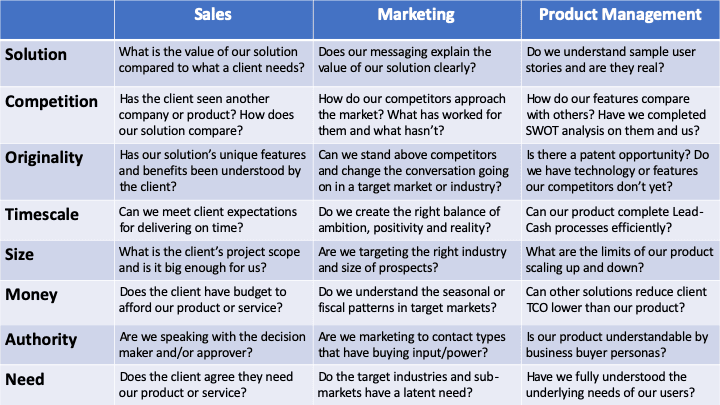No, not that kind…..
Of course, I’m talking about the SCOTSMAN principles:
Solution, Competition, Originality, Timescale, Size, Money, Authority and Need
Historically, these principles have been mostly used by Sales teams when qualifying prospects, but is this why there is often such a disparity (and friction) between Sales, Marketing and Product? Do we feel the same pain or do we think revenue, demand and features are just someone else’s responsibility?
Perhaps we should try to see the world differently from the confines of day to day team-based activities. Unfortunately this is sometimes communicated very clumsily with phrases like “if you don’t work in sales, you work for sales”, which is often the last straw in a battle between salesperson and an uncooperative supporting team member. However, I prefer to think that we all work towards the sale — some before, some during and some after, with the customer central to our success.
Putting aside the “we’re here to do good” ethos that many businesses honestly (and occasionally insincerely) claim, they exist to make sales and then keep those customers for as long as they can.
It’s a bit like that overused story of the janitor in NASA who “was putting people on the moon”. NASA’s goal was to complete a moon mission and explore space. The business exists to generate revenue and profit, so everyone employed is on that mission, whether they realise it or not.
Therefore, it shouldn’t be such a surprise to keep sales in mind wherever in the company you work. Sales, Marketing and Product only achieve amazing things when they do them together.
I’ve always thought this and communicated the principles to my teams across Sales, Marketing and Product wherever I’ve led them, but I never really tried to combine them in a consolidated matrix until now.
It was also an experiment to see if SCOTSMAN really does fit across all those teams and i think it does below:

